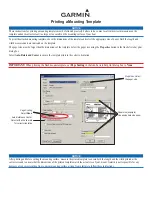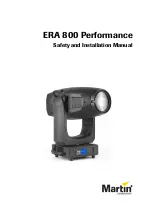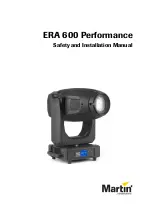
13
4.5.
ICAF SYSTEMS
Box coolers may be affected by marine fouling (algae,
mussels, barnacles and other shellfish) on the external
surfaces of the tube bundle. In the long run this will
seriously reduce the heat transfer.
This undesirable marine growth on the tube bundle can be
reduced by installing an
Impressed Current Anti-‐Fouling
(ICAF) system.
An ICAF system is an electrolytic antifouling system. It
consists of copper rods, the anodes, and carbon steel
plates, which are mounted below the box cooler (see
fig. 13).
A power unit in the engine room maintains a minor current
(the
impressed current
) between the anodes and the
cathodes in order to release the required minimum
amount of copper ions. The copper ions mix with the
seawater in the sea chest and de-‐regulate the local
environmental balance, thus suppressing marine growth
on the box cooler.
To simplify the installation, Duramax Marine® can supply
the box cooler with an integrated ICAF system from
Corrosion & Water Control (see fig. 14a).
In that case the copper anodes are clamped to a frame that
is fixed to the box cooler. Each copper anode is provided
with a 6 m cable. The cables are protected by tubes
(conduits) and led through the tube sheet by means of
cable glands (see fig. 14b).
Install the power unit and connect the cables according to
the installation manual from
Corrosion & Water-‐Control bv
and observe all relevant instructions.
The electrical installation shall only be carried out by
suitably qualified, capable and instructed electricians.
Do not coat the anode rods and cathode plates!
Note that the copper anodes are calculated for a specific
dry-‐docking cycle (e.g. 3 or 5 years).
Figure 13. Copper rods (anodes) and steel (cathode) plates
of the ICAF system mounted separately
in the sea chest below the box cooler.
Figure 14a. Box cooler with integrated
ICAF system.
Figure 14b. Cable gland and conduit for the cables of the
ICAF system, leading to the copper anodes.
cable
gland









































